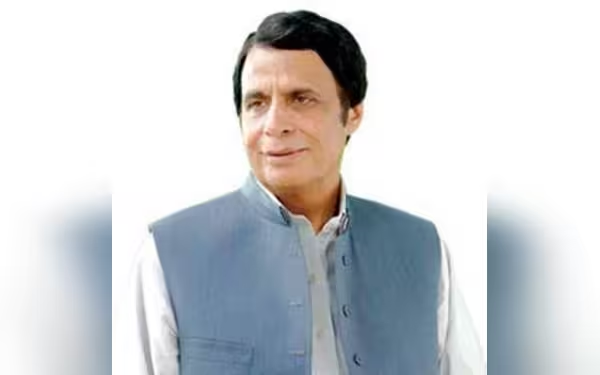Saturday, November 16, 2024 07:57 PM
Corruption Case Against Parvez Elahi Deferred Until November 20
- Hearing of corruption reference postponed to November 20.
- Elahi's absence raises questions about his commitment.
- NAB accuses Elahi of over Rs. 1 billion kickbacks.
 Image Credits: nation_pk
Image Credits: nation_pkThe hearing of a corruption case against Parvez Elahi has been deferred to November 20, raising concerns over accountability in Pakistan.
In a significant development in the ongoing fight against corruption in Pakistan, an accountability court in Lahore has deferred the hearing of a corruption reference involving former Punjab Chief Minister Chaudhry Parvez Elahi and several others. The case pertains to alleged irregularities in development projects in Gujrat, with the next hearing scheduled for November 20.
During the court proceedings, Judge Zubair Shahzad Kiyani presided over the case, where co-accused individuals Naeem Iqbal, Asif, and Asghar were presented after being brought from jail. The atmosphere in the courtroom was tense as the defense counsel requested additional time to present arguments regarding an application that challenges the court's jurisdiction to hear the case. Notably, the counsel for another accused, Muhammad Khan Bhatti, was absent, which further complicated the proceedings.
The National Accountability Bureau (NAB) prosecutor, Waris Ali Janjua, expressed concerns that the accused were attempting to delay the trial. He pointed out that Parvez Elahi did not appear in court, raising questions about his commitment to the legal process. In response, Elahi's counsel argued that his client was unwell and had been advised by doctors to rest, leading to the submission of an exemption application on his behalf.
The court acknowledged the NAB's response to the jurisdiction challenge and granted the defense a final opportunity to present their arguments. Ultimately, the court accepted Elahi's exemption request, allowing him to miss the hearing while postponing further proceedings until November 20. It is also important to note that Muhammad Khan Bhatti was not produced in court due to health issues.
The NAB has accused Parvez Elahi and his son, Moonis Elahi, of receiving over Rs. 1 billion in kickbacks through intermediaries linked to more than 200 development projects in the Gujrat district during Elahi's second term as chief minister. This case highlights the ongoing struggle against corruption in Pakistan, where accountability and transparency remain critical issues.
As the legal proceedings continue, the implications of this case extend beyond the courtroom. It serves as a reminder of the importance of holding public officials accountable for their actions and ensuring that taxpayer money is used for the public good. The outcome of this case could have far-reaching effects on the political landscape in Punjab and the broader context of governance in Pakistan.













